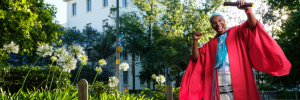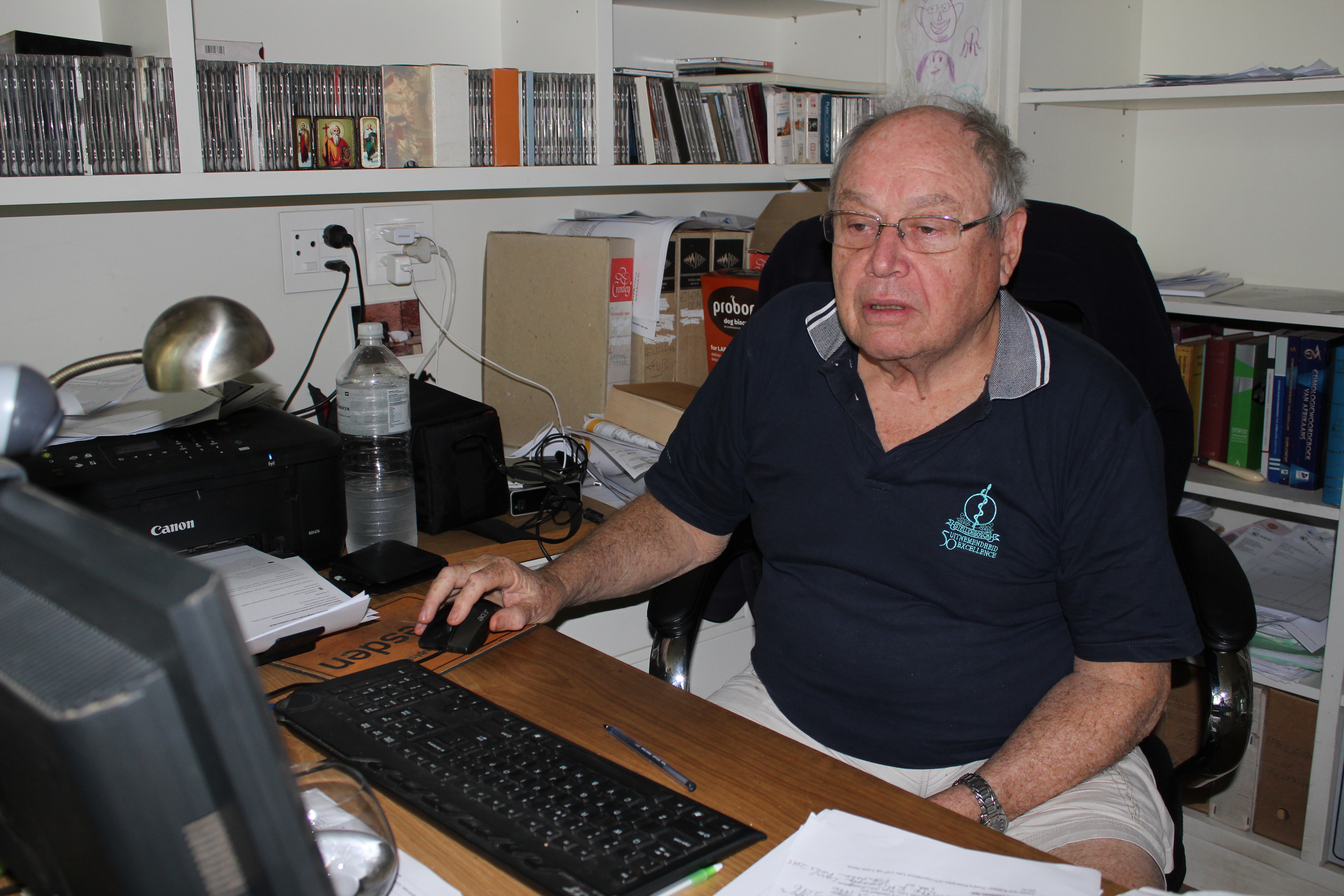
The SU-Mandela connection
The end of July 2018 – the month in which Nelson Mandela's life was honoured through many social impact activities of Stellenbosch University (SU) – does not signal the end of the University's initiatives to make a difference in the lives of the broader community, students and staff members.
Just as the initiatives will continue, so too will the memory of Mandela and his connection to SU. When looking at the huge banners portraying Mandela's face and the words depicting his legacy, one realises that three of the highlights of the University's first centenary were visits by Madiba to SU. These visits will continue to be celebrated at SU in the next 100 years.
The relationship between SU and Nelson Rolihlahla Mandela began in the years when Mandela was incarcerated on Robben Island. Prof Andreas van Wyk, Rector and Vice-Chancellor from 1993, recalls that the relationship between SU and Mandela began long before Mandela's release in 1990 and his first official visit to the SU in 1991.
“When Mr Mandela was in need of medical attention at the time he was in prison, he was taken to the best specialists in Tygerberg Hospital. For years, even his dentist was from our dental faculty. He came to Tygerberg several times over the years," Van Wyk explained. “The medical staff at Tygerberg complained that he should not come for medical treatment with handcuffs on, as they could not perform proper medical treatment under those circumstances."

Mandela's first visit as a free man to SU came in 1991, following an official invitation by Van Wyk who was the acting rector at the time. Van Wyk said the two of them walked together on campus and visited the Neelsie Student Centre. “There were no formal speeches but he talked to students as we walked through the Neelsie. We offered him lunch in the Neelsie, while prominent professors such as Bernard Lategan, Sampie Terblanche, and others that attended the Dakar Conference (also known as the Dakar Dialogue and the Dakar Initiative) in 1987, joined in."
The Dakar Conference, held in Senegal, was a conference held between members of the Institute for Democratic Alternatives in South Africa (IDASA) and the African National Congress (ANC). The conference discussed topics such as strategies for bringing fundamental change in South Africa, national unity, structures of government, and the future of the economy in a free South Africa.
On 25 October 1996 Mandela became an alumnus of SU when he accepted an honorary doctorate degree from the University. “It was important for us, especially at that time, to be the first Afrikaans university to honour Mandela in this way," said Van Wyk. “It was a very important gesture of reconciliation within the framework of the rainbow nation. There was an erroneous perception that Stellenbosch was the cradle of apartheid. After 1996, we continued our contact with president Mandela. He regularly invited the University to various state functions in Cape Town. I met many heads of state through Mandela at the events he hosted. At all these events he officially and personally recognised me."
Van Wyk continues that although SU's honorary doctorates committee had earlier decided in principle no longer to bestow honorary doctorate degrees upon politicians, the members agreed that certain exceptions should be made. “Apart from Mandela, we also bestowed honorary doctorates on three consecutive ministers of finance, Chris Liebenberg, Derek Keys and Trevor Manuel. This was done simultaneously to emphasise their joint efforts to ensure financial stability during South Africa's uncertain transition to democratic rule. Van Wyk recalls that the day Mandela received his honorary doctorate was a particularly happy day at the University. Mandela delivered a memorable speech at the graduation ceremony that touched many hearts. In the last part of his speech, Mandela said, “It still remains my wish, though, that we will all be absorbed together in this vast land. And that Afrikaans institutions and Afrikaans people will never again be surly and stand-offish and apart but, rather, that they will be an interwoven part of what we are newly creating."
Mandela concluded his speech by saying, “It is in the knowledge that this University has a large part to play in making that wish come true, that I accept the honour of being made an alumnus of the University of Stellenbosch." In all his interaction with SU Mandela insisted on using his fluent Afrikaans.
On 19 March 2008 Nelson Mandela visited SU for the last time when he supported his wife, Graça Machel, who was awarded an honorary doctorate in Arts and Social Sciences.
Over the past two weeks, SU honoured Mandela with the rest of the country. SU staff and students are not only remembering the principles that made Mandela's legacy one that inspired and altered the entire country and the world at large, they are following his example by leaving a lasting footprint that will be remembered by those whose lives they touch.
Former president Mandela is addressing students in the Neelsie Student Centre in 1991. Picture: Erhardt Thiel.
On 25 October 1996, Stellenbosch University awarded an honorary doctorate degree to former President Nelson Mandela. Top left: Prof Andreas van Wyk, former Rector and Vice-Chancellor of SU; Dr Sibusiso Bengu, then Minister of Education; the former Chancellor, Dr Jan van der Horst; and Mr Gys Steyn, then Chairperson of the SU Council.
Former President Nelson Mandela at the graduation ceremony of his wife, Ms Graça Machel, also attended by Arthur Chaskalson (left), first President of the Constitutional Court and later Chief Justice of South Africa; and Prof Vic Goedseels (right), executive head of the Catholic University of Leuven in Belgium, a close SU partner.
Former President Nelson Mandela and Prof Russel Botman, past Rector and Vice-Chancellor of Stellenbosch University, at the graduation ceremony in March 2008.
